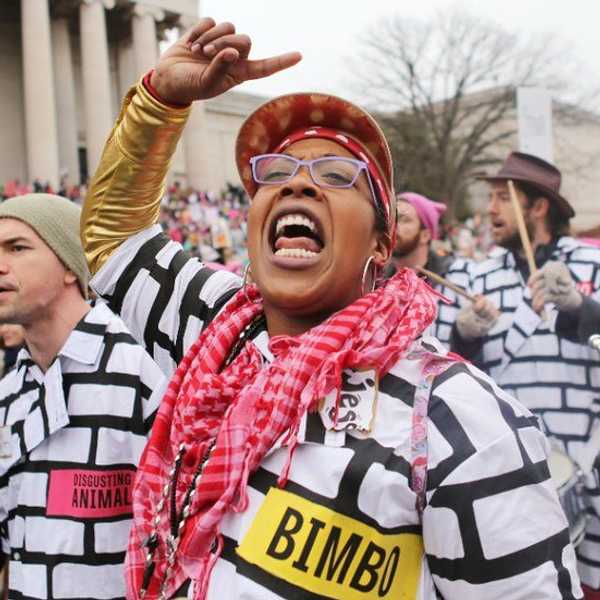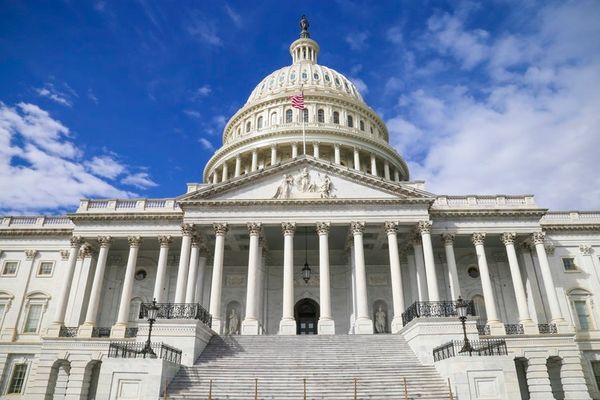Recently, there has been much discussion on the necessity of intersectionality in modern feminism, a topic that plenty will probably either be clueless or vaguely familiar with. As the push for equality pushes forward, it is important to understand what it means to be intersectional and how that influences views on identity and oppression.
Intersectionality is a term and theory created by Kimberlé Crenshaw, a law professor of race and gender issues, that there are separate component identities that intersect to create a whole.
Imagine that you are building a Lego house. The bin you are choosing your pieces from has bricks of all sizes, shapes, and colors, and no two are alike. Each Lego represents a different piece of identity: sexuality, gender, ethnicity, age, class, disability, religion, etc. There are only a certain set of bricks that combine to create your house. The final product, your Lego house, represents your identity as a whole. Each brick, or component identity, is intrinsically connected, or intersect, and is reliant on each other to create your Lego house, your entire identity.
Although originally used to explore the experience of women of color, this theory helps study how discrimination and oppression occurs on multiple dimensions, or intersections. Discrimination and oppression reflect a similar interrelationship as identity does, and this helps explain how they generally act a system of suppression rather than a single force. A specific thread of identity discrimination or oppression is said to be shaped by other identity intersections, such as gender, race, age, etc.
Minorities are specifically targeted through oppressive systems, as most policy will address A) one intersection of identity, and B) a majority identity. Minorities experience an "other" group perception when policy is created as such. When a person exists on multiple minority intersections, that oppression is compounded, and often cyclically experienced. To combat this oppression, it is argued that a person's identity should be evaluated on the simultaneous interaction between their intersections, and how it affects an individual's privilege in a society.
Now that all the technical parts have been explained, you're probably wondering how you can apply that to your own activism or even your own view of society. Below is the best advice that I can give as someone who is still learning how to incorporate intersectionality into my personal philosophy
First Step: Read, read, and read some more.
Becoming an intersectional individual requires that you expand your personal scope on how identity is created in an individual. Read up on literature that explores intersectionality (brownie points if you can find a variety of authors). The best way to understand an individual or identity is to hear about their experience from their own words. Try your best to not assume any information or feeling about the individual that you are reading about, let them explain themselves. This step isn't limited to literature either; podcasts, videos and other digital sources abound on the subject of identity and oppression. Be mindful when asking about someone's experience in their identity, as you should always respect the right to privacy.
This step will continually be important, as the theory of intersectionality is ever evolving, just as our society is. As the conditions of daily life changes, so will the experiences of minorities. That being said, it is still vital that you understand the history of identity as a diverse collection of intersections.
Second Step: Use your privilege for good.
As a white, able-bodied, cis woman, I have plenty of privilege in society today. There is a chance that my platform may receive more attention over a nonwhite, disabled, and/or trans individual would. As unfortunate as that may be, I still can utilize my platform to combat that phenomenon and enable those voices to be heard. The most practical way of doing so is to use my platform (social media especially) to spread their words. It is this way that I can ensure that their experiences are discussed in their purest form, straight from that individual's mouth. It can be hard for a lot of people to feel empowered to speak on the behalf of someone else that experiences oppression based on their identity; that does not mean that you possess the wrong intention. But if you bypass the original source of experience on a particular thread of oppression, some ideas will be lost in translation, as you will not be able to explain it in the way that that individual experienced it.
This also applies when you are asked to speak or act on the behalf of an identity that is not your own. If approached for a role or the discussion of an topic that is not your ethnicity, gender, sexuality, or other identity, pass that role to someone who possesses that identity. There is a large disparity in many fields, including academia and film, that have issue with bringing to the table someone who experiences life as that particular identity. It would be wrong for me to take a role as a disabled person in a film as I am not disabled, and it would be wrong for me to speak on the experience of African American women as I am white.
An easy way to sum all this up? If a topic comes up that discusses an experience that you have not had as an individual, step aside and let someone who has speak. While there continues to be oppression that wants to ignore minority groups, you can resist that by giving your platform to speak.
Third Step: Continue to analyze and correct your own actions and beliefs.
You aren't a saint, and actively trying to be an intersectional activist will require a lot of self-evaluation. There are ideas, no matter how seemingly insignificant, that have been conditioned into you by our society. You need to recognize those ideas that predispose you to hold a certain perception of a group are based most likely on stereotypes meant to harm that group. More commonly now, examples of this are referred to as microagressions, or insidious statements that insinuate a negative or ignorant perception of a group or individual.
It's important to keep check on the things you think or say and recognize that every person has a unique experience based on the combination of identities they possess. Never forget that being an intersectional activist is as dynamic as the intersections themselves, and that means you have to work at it.
Now what?
Recognizing intersectionality as a reality is a vastly important part of striving for equality. Our world is wildly diverse, and it is our duty as citizens of this world to ensure that we view and live with each other based on the principle that the diversity we hold in our identities is not a setback, but something to be celebrated and talked about. It is through the recognition of intersectionality that we as a society can begin to combat the ideas and policies that seek to discriminate or oppress on the basis of certain identity.





















